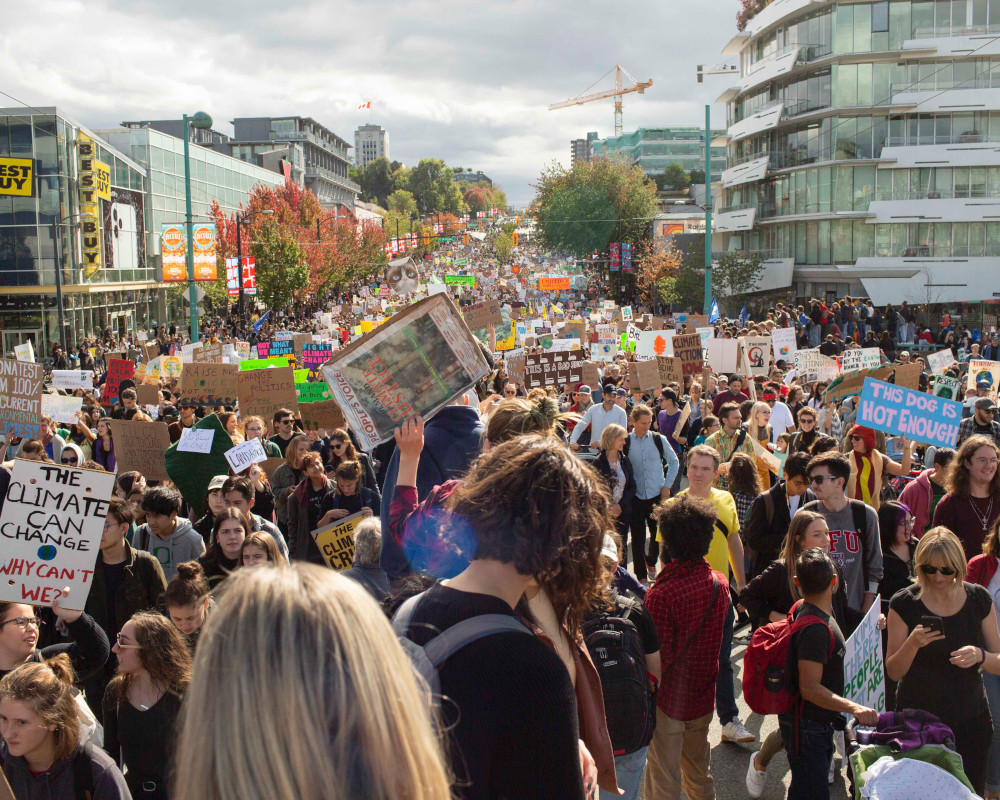The minority government won by Justin Trudeau Monday night means that federal climate policies brought in by the Liberals will for now remain in place — along with fears that those policies are too incremental and weak to properly address the climate emergency.
That means that Canada will continue to have one of the world’s most far-reaching systems of pricing carbon, be committed officially to bringing emissions down to zero by 2050, lead a global effort to speed up the phase-out of coal and still be short of achieving the 2020 climate targets it agreed to at the Paris climate talks.
“Liberal candidates love to talk about listening to climate science and the IPCC report, but during their last four years in office, Liberal climate policy fell far short of what the science demands,” the youth-led climate organization Our Time wrote in the lead-up to the election.
Our Time is part of a coalition pushing candidates to adopt an economy-transforming Green New Deal similar to what has been proposed in the U.S. by politicians like Alexandria Ocasio-Cortez. Some of the candidates it endorsed won seats Monday night, including the NDP’s Alexandre Boulerice in Montreal, NDP candidate Matthew Green in Hamilton and Vancouver NDP candidate Jenny Kwan.
With Trudeau now leading a minority government that could depend in part on support from the NDP and Greens, both of which proposed arguably more ambitious climate plans than the Liberals, observers such as 350 Canada’s Cam Fenton warned that “Those Liberals that won tonight had better be ready to take serious action for climate justice.”
Yet it could have been a far worse outcome for the climate if Andrew Scheer’s Conservatives had won the election. Scheer, backed by oil and gas producers from Calgary, had vowed to cancel Canada’s price on carbon if he became prime minister and replace it with a plan that could have led to the country’s emissions increasing.
This led international media like Bloomberg to report in the lead-up to Monday’s vote that “Canada’s leadership on climate change and preparedness for an energy transition away from fossil fuels could be disrupted by a national election Oct. 21.”
Instead, the Conservative defeat led Toronto Star columnist Chantal Hébert to conclude that “This should be the last election that any party believes it can win without a serious climate change plan.” Yet Edmonton-based climate expert Andrew Leach tweeted, “I hope she’s right. I’m not convinced she is, though. Provincial governments tell a different story than tonight’s federal campaign.”
Expect intense resistance on the one hand to Trudeau’s climate agenda from carbon price-hating premiers like Jason Kenney and Doug Ford. The Liberals will also face intense criticism from an increasingly coordinated and organized grassroots movement pushing for radically transformative action. All the details of what a minority government means for climate policy will be figured out in the days, weeks and months to come.
But it’s hard to dispute that Canadian climate politics is likely to get a whole lot wilder. ![]()
Read more: Election 2019, Federal Politics, Media, Environment

















Tyee Commenting Guidelines
Comments that violate guidelines risk being deleted, and violations may result in a temporary or permanent user ban. Maintain the spirit of good conversation to stay in the discussion.
*Please note The Tyee is not a forum for spreading misinformation about COVID-19, denying its existence or minimizing its risk to public health.
Do:
Do not: